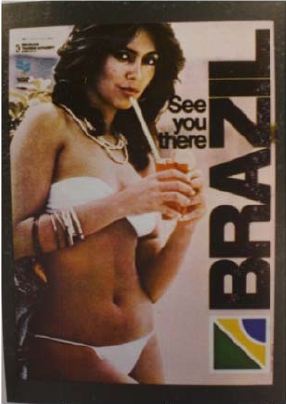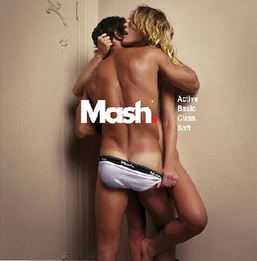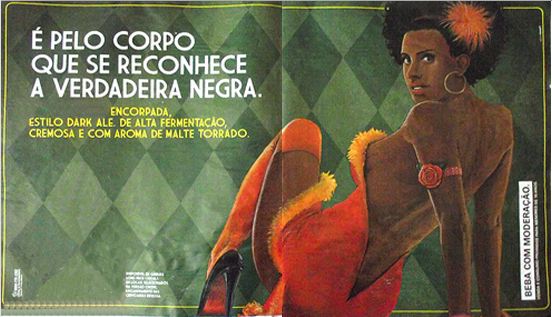Public unrest and economic worries threaten to spoil the World Cup host’s national party
 ©Getty
©Getty
Fresh gospel: Brazil is preparing a new public-relations campaign to improve perceptions of the World Cup
For weeks workers at São Paulo’s Itaquerao stadium have been clearing up the damage from a deadly
construction accident in November. A giant roof girder crashed through a wall of the unfinished 68,000-seat arena, killing two labourers and casting a pall over Brazil’s preparations for this year’s football World Cup.
“People working in there say it won’t be ready in time for the World Cup,” says Paulo Arminio, who sells snacks to construction workers from a van outside the venue and who witnessed the accident.
The government and Fifa, football’s global governing body, insist the stadium will be ready for the world’s most popular sporting event, which begins in June.
More
ON THIS STORY
ON THIS TOPIC
IN ANALYSIS
But the troubles at the Itaquerao – which came just months after millions of Brazilians took to the streets to protest against poor public transport and infrastructure, ailing government services and corruption – set the stage for a difficult year for
Dilma Rousseff, Brazil’s president. She is standing for re-election in October with her Workers’ party (PT), which has been in power for nearly 12 years.
The tournament could be the crowning achievement for Brazil, a time for o País do Futebol, or the country of football, to celebrate its economic achievements over the past decade, when Brazil built a middle class and cemented its role as one of the Brics group of leading emerging nations.
Yet the country seems in little mood to celebrate. Instead of the media hype normally associated with a World Cup year, there are fears that mass protests could return to haunt the tournament. The tensions are underscored by apprehension over an economy that may have slipped into technical recession in the second half of 2013 – something that economists say has been driven in part by overly interventionist government policies.
Ms Rousseff`s challenge this year will be not only to ensure a smooth World Cup but also to convince increasingly sceptical investors that Brazil’s economy can return to a path of higher growth. Her efforts will help determine whether the past 10 years will be seen as the “Latin American decade”, the period when the continent finally found its economic feet, led by Brazil. Otherwise, history may judge it as a missed opportunity that, with the exception of some more reform-minded countries such as Mexico or Chile, saw the region waste a decade-long commodity boom by focusing on consumption rather than investment, and not introducing sustainable reforms.
“We lost the narrative,” says Paulo Sotero, director of the Brazil Institute at the Woodrow Wilson International Centre for Scholars in Washington. “The combination of a negative or worrisome economic outlook and the delays in the construction and renovation of stadiums and public transportation systems for the World Cup has prevented Brazil from using a storyline that this is a positive event.”
The Arena da Amazônia in Manaus looks like a giant sea urchin, with a high-tech white exoskeleton encasing the football pitch within. The city, Brazil’s historic rubber capital, sits at the heart of the Amazon. It has proven perilously tardy in finishing the project, having missed the latest deadline in December.
During an inspection this month, Jérôme Valcke, Fifa’s secretary-general, looked relieved as he strode out on to the almost-completed stadium’s newly laid turf. “Sometimes a pregnancy is a bit more difficult than others,” Mr Valcke said, attempting to explain why the building of Brazil’s stadiums has run so late.
His diplomacy masked Fifa’s rocky relationship with Brazil. Last year, reeling from repeated delays and the mass protests that shook the country,
Sepp Blatter, Fifa’s president, even questioned whether the organisation had “made the wrong decision” in awarding the games to the Latin American country.
. . .
It was not meant to be this way. When Brazil in 2007 won the right to stage the World Cup, Luiz Inácio Lula da Silva had just won a second term as president. The economy was riding high on commodity prices, an expanding, youthful workforce and the discovery of extensive oilfields off the cost of Rio de Janeiro. There seemed to be nothing Brazil could not achieve.
An exuberant nation over-promised in its pledges to Fifa. While the soccer authority sought as few as 8 stadiums,
Brazil committed to hosting games in 12 cities. It also promised other infrastructure for the tournament, even hinting that a
proposed bullet train between Rio de Janeiro and São Paulo might be ready in time. (It has been shelved.) “Soccer is more than a sport for us, it’s a national passion,” Mr Lula da Silva told the BBC at the time.
Fifa bought the story. Despite Brazil’s reputation for poor infrastructure, it said in a 2007 report: “The inspection team concluded that the existing air and ground transport infrastructure would enable Brazil to host an excellent 2014 Fifa World Cup.” Moreover, Fifa detected huge public support for the bid. “The inspection team was greeted during the various trips [to prospective host cities] with spontaneous manifestations of joy and hope.”
Next on the bandwagon were international investors, who seized on Mr Lula da Silva’s story of a new Brazil with 30m new consumers joining the lower middle class. In 2010, growth surged to a China-like 7.5 per cent on the back of a peak in commodity prices, a big expansion of loans from state-owned banks and a credit-fuelled spending spree by consumers.
Last June Brazil’s football-loving public suddenly turned hostile and threatened to scupper the Confederations Cup, Fifa’s dress rehearsal for the World Cup in Brazil. The protesters’ initial target was a bus and metro fare increase but it soon expanded to the poor state of infrastructure and public services, lavish expenditure on World Cup stadiums and general distrust of politicians. “We want ‘Fifa-standard’ hospitals,” the protesters’ placards read, not just Fifa-standard stadiums. The crowds even booed Ms Rousseff at the opening game.
The movement became the staging ground for a new mixture of hardcore leftist and anarchist activists who use so-called “Black Bloc” tactics, wearing masks and attacking the symbols of the state and corporatism, such as government buildings and banks. “I denounce the over-billing of the stadiums that have made the 2014 Cup the most expensive in the world,” said one protester.
Capital Economics, a London-based research house, this month criticised what it dubbed “the wasted decade” in the region. Instead of investing, many countries in Latin America, including Brazil, squandered much of the cheap finance available on a consumption boom. Investment as a percentage of gross domestic product in Brazil fell between 2008 and 2013 from over 20 per cent to about 18 per cent.
This has led to below-par growth during the past three years for Brazil: 2.7 per cent in 2011 and 0.9 per cent in 2012. It is expected to be below 2 per cent for 2013. Ms Rousseff is on track to have the lowest average economic growth during a four-year term of any president since Fernando Collor in 1990-1992, says Oxford Economics.
Meanwhile, government intervention in areas such as energy, finance and petrol prices has scared investors while inflation has remained persistently high.
“The authorities have missed a golden opportunity to utilise cheap external finance to increase investment, deepen the region’s capital stock and raise Latin America’s long-run growth potential,” wrote Neil Shearing of Capital Economics.
The government is not taking such criticism lying down. In January Ms Rousseff made her first trip to the World Economic Forum in Davos to say that Brazil was open for business. The central bank was raising interest rates to address inflation. The government had pushed ahead with infrastructure privatisation and had promised to rein in
budget spending in a bid to prevent a credit rating downgrade by Standard & Poor’s.
. . .
Government officials argue the criticism is overdone. Brazil’s growth last year will probably exceed that of the current market darling, Mexico, which managed only 1.2 per cent. Unemployment is at record lows. Brazil has weathered several global economic crises, including the recent emerging market sell-offs, better than many other economies.
“There are a lot of concerns the economy is not growing that much but look at unemployment. Wages are still growing. Foreign direct investment is still flowing,” says João Augusto de Castro Neves of Eurasia Group. “These mixed signals, they explain [why the government is content with] this kind of muddling through.”
More importantly for the PT, Ms Rousseff remains popular. A
poll released on February 18 showed she would be likely to win this year’s presidential election in the first round with 43.7 per cent of voter intentions versus 17 per cent for Aécio Neves, the more pro-business Brazilian Social Democratic party candidate, and 9.9 per cent for Eduardo Campos of the Brazilian Socialist party.
“My opinion is that the economy will not hurt Dilma seriously in the election . . . unless something very dramatic happens,” says Carlos Eduardo Lins da Silva, special adviser to the São Paulo Research Foundation.
Something “dramatic” is always a possibility in Brazil. No one predicted last year’s protests. While opinion is split on whether Ms Rousseff’s fortunes will also be tied to those of the Seleção, Brazil’s national team, the mood on the streets is likely to be more important.
In Manaus, critics have described the stadium’s cost of about R$600m ($255m) as extravagant for a city that boasts no top league soccer team and has widespread inequality. Despite being in the middle of the planet’s largest fresh water system, only 27 per cent of its 2m population is connected to sewerage, against a national average of 48 per cent.
The government argues the World Cup will help put the city on the global map. “Manaus will become much more known in the world because of the World Cup,” says Arthur Virgilio Neto, the mayor.
The challenge for him and his counterparts across Brazil will be to convince a sceptical public that the tournament was not an elaborate “jobs-for-the-boys” scheme.
“If it [investment] is only focused on the World Cup, that will pass and nothing will change,” says Diego, an artist waiting at the bus stop by Manaus’s stadium. “The World Cup will be like a piece of gold jewellery that turns out to have been made only of lead.”
Additional reporting by Samantha Pearson and Thalita Carrico
-------------------------------------------
Demonstrations: Protest songs add to chorus of disapproval
Protesters in Brazil are turning to music to attack what they see as vast public overspending on the World Cup and police violence against protesters, write Joe Leahy and Thalita Carrico.
“Cabral get lost,”
sings Los Vanda, a band that produces satirical covers of hit songs, changing the words to lampoon politicians, including Sérgio Cabral, the governor of Rio de Janeiro state. The band appears on YouTube wearing the masks of the so-called “Black Bloc” movement, an aggressive form of protest in which participants attack the symbols of the state and capitalism. “We’re tired of watching you steal.”
Few are willing to bet the protests that rocked Brazil last June, when more than a million people took to the streets to express their frustration with poor government services and perceived corruption, will return this year during the World Cup.
One reason is that more moderate Brazilians may be reluctant to participate in street demonstrations after violent clashes between Black Bloc protesters and the police.
“That mass of people that went on to the street in June never came back and probably they won’t,” says Carlos Eduardo Lins da Silva, special adviser to the São Paulo Research Foundation.
This year, however, there has been a groundswell of protest against the World Cup. Police in São Paulo detained 262 protesters at the weekend.
“We’re in favour of football and sport in general,” members of Los Vanda say in an email interview with the FT. “The problem with the World Cup was never the tournament but the manner in which it is being done. The World Cup attends to the economic interests of Fifa and not the interests of society.”
The government counters that the tournament will have a valuable social and economic legacy. In Manaus, deputy sports minister Luis Fernandes says a direct result has been improved internet networks in the country’s less developed north.
The government is also striking back on social media networks, hitherto the stronghold of the activist groups.
President Dilma Rousseff recently appointed a new communications minister to craft a public-relations campaign to change perceptions. The slogan, “The Cup of Cups”, aims to inspire Brazilians to take pride in the event.
 “But you are Brazilian!” – after I rejected a sexual advance.
“But you are Brazilian!” – after I rejected a sexual advance.







